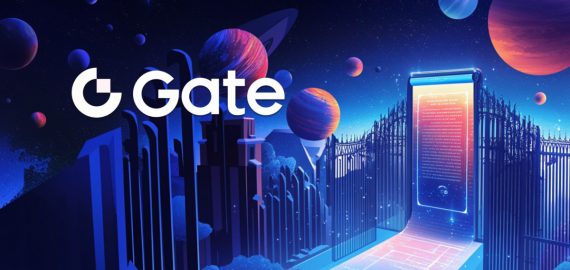The Emerging “Hybrid” Experience Could Be A Game-Changer For Customer Engagement


Non-fungible tokens have been criticized as little more than a gimmick and even dismissed as outright scams in some quarters. Yet, as the technology evolves, newer use cases are starting to become apparent that could be transformational in the way businesses interact with their customers. One of the most promising ideas around NFTs relates to their unique ability to create “hybrid” experiences that bridge the divide between the digital and physical worlds.

It’s a timely development for the NFT industry, which has been viewed as running out of steam lately. After exploding into the public consciousness during the crypto summer of 2021, when we saw numerous headlines of multi-million dollar NFT sales, the industry entered into a nosedive last year. In 2022, NFT sales dried up and their values plummeted, and more people became convinced that the technology was little more than a fad.
The decline of NFTs quickly accelerated due to the fact that thousands of scammers and bogus artists attempted to jump on the bandwagon, pumping out hundreds of low quality NFT projects and outright fakes. The NFTs’ bubble burst in a spectacular way last year, but the concept refused to die away.
Now, NFTs are beginning to get some traction once more as people come to realize the ways in which they actually provide value. NFTs with real-world use cases suddenly started getting more attention, rather than some random and poorly-drawn monkey picture trying to ape a very popular collection. By NFTs with real-world use cases, we mean NFTs that actually provide some kind of tangible benefit to the person who owns it. These benefits are pretty wide-ranging, with membership of an exclusive dining club, a sports star’s autograph, or video game characters being just a few examples. Gaming, especially, has extracted great value from NFTs, using the technology to enable a whole new genre called “play-to-earn”, in which gamers can earn crypto as a reward for playing games.
Now, one startup is attempting to build on the idea of real-world NFTs. Lost Worlds last year introduced the concept of geoNFTs, which are digital assets that are connected to physical locations.
GeoNFTs are inspired by the hit augmented reality game Pokemon Go, which encouraged millions of people to get out and about in the world, searching for little Pokemon monsters on their mobile phones. The Pokemon were visible in an AR application that was overlaid onto the real world, so users would have to visit their nearby shopping mall or park and literally walk around, hunting for them.
The huge success of Pokemon Go, which became a global sensation for a few months back in 2016, was one of the first examples of augmented reality going mainstream, and solid proof that it’s a technology people are interested in.
Augmented reality was the essential element of Pokemon Go, making the game the incredible success that it was. Lost Worlds thinks the same technology can be just as powerful for businesses and brands, especially when it’s combined with NFTs. By doing this, Lost Worlds says it NFTs can help to create more interactive, immersive and engaging experiences for consumers.
GeoNFTs In The Real World
As we’ve already explained, it’s the NFTs that provide real-world value that helped drag the nascent industry through the recent crypto winter. In gaming, NFTs give players access to the game itself and also enhance the powers of their characters. In the real world, NFTs can provide holders with similar benefits
Lost Worlds’ geoNFTs are digital assets that are linked to a particular place, and if someone intends to mint that asset, then they must visit the actual place to do so. An example of how it works was played out at the recent NYC.NFT event, where Lost Worlds hosted the LOST.NYC experience, scattering NFTs around Manhattan and encouraging users to explore the city and collect them. Those who found an NFT would then receive a real world benefit, such as physical merchandise or access to an exclusive event.
It’s an idea that almost any business could employ to boost engagement with consumers. By dropping geoNFTs at special events like festivals and concerts, or scattering them around famous landmarks in cities, businesses can create a kind of scavenger hunt that merges the digital world with its physical counterpart – a “hybrid” experience, if you will.
Lost Worlds has created an opportunity for businesses to incorporate digital assets into extremely creative marketing campaigns. For instance, a beer brand could design customized NFTs and place them at different locations at an event such as Munich’s Oktoberfest. The first ten people who collect the whole set could then be entitled to a free pitcher of beer. Alternatively, a football team could drop NFTs at each opponent’s stadium they visit, encouraging their fans to travel and support the team with prizes based on how many tokens they collect over the season. Collect every one and you’ll get to meet Lionel Messi!
NFT collectors don’t just benefit from the prizes they win though, as the whole adventure of searching for these digital assets will result in a totally different way of experiencing the places they visit. People will get to visit locations they probably wouldn’t go to otherwise. They could even be used to promote good causes. For instance, a brand might drop NFTs at a fun run that aims to make money for charity, helping to boost attendance and participation.
Such interactive experiences, if done right, can become a powerful driver of customer engagement and underpin sophisticated loyalty programs. GeoNFTs represent an exciting way for businesses to increase their appeal with customers through hybrid experiences.
Don’t Ignore Hybrid Experiences
Perhaps the best thing about geoNFTs is that it’s pretty straightforward for anybody to mint these digital assets. Lost Worlds has created a simple web application that anyone can access on their smartphone or tablet, without downloading anything. So users can mint the NFTs they locate right there on their device, even without having a crypto wallet. The geoNFTs can be free to mint or paid, and for those who are charging money for their NFTs, Lost Worlds even supports fiat payment options such as Apple Pay and Google Pay, so users don’t need any crypto to get started.
Lost Worlds has also developed strong anti-spoofing technology that prevents people from simply changing the location on their device by using a VPN or changing their GPS data, so no one will be able to cheat.
The possibilities for hybrid experiences that tie the digital and physical worlds are limited only by our creativeness. Moreover, their potential reach is massive. In the U.S. alone, more than 32 million people visit music festivals every year, making that segment an especially interesting target for a multitude of brands. Retail stores, restaurants, theme parks, sports teams and many more stand to benefit from this intriguing new form of customer engagement. So expect to see many new kinds of hybrid experiences emerge as more brands discover this technology.
Read more related news:
Disclaimer
In line with the Trust Project guidelines, please note that the information provided on this page is not intended to be and should not be interpreted as legal, tax, investment, financial, or any other form of advice. It is important to only invest what you can afford to lose and to seek independent financial advice if you have any doubts. For further information, we suggest referring to the terms and conditions as well as the help and support pages provided by the issuer or advertiser. MetaversePost is committed to accurate, unbiased reporting, but market conditions are subject to change without notice.
About The Author
Gregory, a digital nomad hailing from Poland, is not only a financial analyst but also a valuable contributor to various online magazines. With a wealth of experience in the financial industry, his insights and expertise have earned him recognition in numerous publications. Utilising his spare time effectively, Gregory is currently dedicated to writing a book about cryptocurrency and blockchain.
More articles

Gregory, a digital nomad hailing from Poland, is not only a financial analyst but also a valuable contributor to various online magazines. With a wealth of experience in the financial industry, his insights and expertise have earned him recognition in numerous publications. Utilising his spare time effectively, Gregory is currently dedicated to writing a book about cryptocurrency and blockchain.


















































